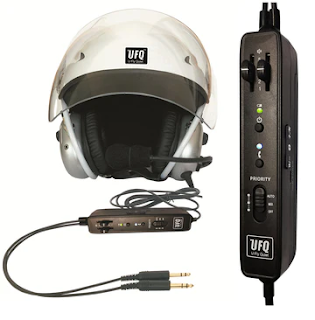Aviator Helmet: Are They Necessary?
If
there is an accident, wearing an aviator helmet may reduce the risk of severe damage or save your life. Even though
it may seem obvious, some pilots still choose to fly without wearing the proper
safety gear when in the cockpit. Despite what you may think, flight helmets'
primary function is not to protect the wearer's life in the case of a collision
with another object. If you fulfill the necessary aviator helmet rules, you may still be protected while in the
cockpit, even if there are hazards associated with flying.
There
is more to an airplane's headphones
function than just ensuring the pilot's safety. If you travel with other
people, you are responsible for ensuring their safety is not compromised. The
price of a flying helmet is small compared to the risk of suffering a severe
injury or losing one's life, both of which might be prevented by wearing one.
Everyone involved in the accident, including those on the ground, is in danger
during a collision. In addition to protecting your head, a well-fitted and
equipped helmet may improve your ability to communicate, enhance your eyesight
while simultaneously protecting your eyes, and provide an ideal platform for
the communications equipment you wear. We provide helmet inspection
certifications to ensure that your flight helmet provides the necessary level
of protection and that our helmets are certified to meet the most current
safety rules.
A
report detailing an incident in which a bird assaulted a pilot while in the air
was published not too long ago by the United States Department of the Interior.
The fact that the pilot was wearing his helmet and had the visor down ended up
saving his life. Because his aviator
helmet had a visor, the bird debris that might have gotten into his eyes
and caused him to lose control of the helicopter was prevented from doing so.
On that day, it was reported that the pilot's skillful flying and the use of
aviation life support equipment saved three lives (ASLE).
Are Helmets Required by
Law to Be Worn?
Even
though they are not required by law, several companies require their pilots to
wear an aviator helmet, especially
while participating in training activities. Airplane headphones may be customized with various add-ons and
accessories, including night vision systems, communications gear, and visors
that expand the wearer's field of view. Because of the increased potential for
head trauma and the fact that helicopters frequently fly at low altitudes, the
pilots of helicopters typically fly while wearing helmets. Flight helmets may
offer advantages in terms of noise reduction for pilots, particularly when
flying with the doors open on a helicopter. In addition to providing a better
fit than a headset for communication, an aviator
helmet may also offer an improved fit. There is also the possibility that
debris or lost items within the vehicle could fall into it, which could damage
the vehicle or cause the pilot to lose full control of the vehicle if you are
going to engage in a high-risk activity. At the same time, in the air, the last
thing you want is something to hit you in the face or eyes.



Comments
Post a Comment